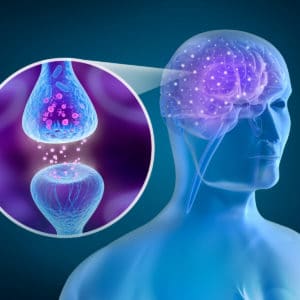Search by category, archive or keyword

Honesty is not a trait commonly used to describe an addict or alcoholic. Because those struggling with addiction feel compelled to hide their illness and often deal with feelings of embarrassment and guilt, they are usually dishonest to those they love, as well as to themselves. Furthermore, they avoid confrontation and negativity. If they told the truth, that is exactly what would happen.
As the disease progresses, substance abuse lowers addicts’ or alcoholics’ ability to be objective and make good decisions. They do not see the destruction to their lives for what it is. Their reality becomes centered around their addiction, and they are no longer able to distinguish between the truth and the lies they tell themselves and others.
This lack of truthfulness is not only a problem when it comes to helping someone who is addicted to drugs or alcohol, but it is also detrimental to the addict who is likely speaking mistruths to him or herself, which perpetuate the problem.
The 6 Lies Every Addict Says
Interestingly, the lies conjured up by nearly all addicts and alcoholics typically follow a similar theme. Here are six to watch for:
I Can Stop Using My Substance Of Choice Whenever I Feel Like It

I’m in control. This is a particularly interesting lie because addicts want others to believe they have control over their lives. Yet, they can’t admit to being controlled by alcohol or drugs, especially when they are using the substances in order to cover up a trauma or other problem. They are psychologically addicted to their substance of choice as long as they are not seeking help for starting to use it in the first place.
There is also the added problem of chemical changes in the brain as use continues long-term. Now the altered brain chemistry causes physical cravings for the substance in order for the user to feel “normal.”
I Need Drugs Or Alcohol To Cope With My Problems

This is a self-perpetuating lie because addiction to drugs or alcohol causes additional problems, yet it is used as an excuse to self-medicate when these problems arise. Many addicts and alcoholics use this lie when being treated by a mental health professional to justify their substance abuse because of their inability to face the original problems.
This is especially true when dealing with trauma. The addict cannot seem to find a way to deal with problems without self-medicating, when in fact, this makes the problem worse and adds even more problems, causing the cycle to continue.
I’m Nothing Like (Name)

Addicts like to compare themselves to others with problems to justify their less-severe addictive behaviors. Unfortunately, addiction is addiction whether the individuals are arrested for a DUI, passed out in their own homes, or abusing prescription medications on a daily basis. It’s only a matter of time before behaviors worsen because addiction is a progressive disease. As with any illness, it needs to be addressed, regardless of the “stage” one is in.
My Addiction Has Nothing To Do With Anyone Else

Addiction is a disease of isolation, and addicts like to hide their illness from those around them. Unfortunately, addiction affects friends and family in numerous ways. At this point, denial sets in, and addicts often think that loved ones are judging them for suggesting that help or treatment is needed. They see others’ concerns as an attempt to control them. They do not see how their behavior is affecting the people around them, having constructed a reality where there is no problem.
I Have Nothing To Live For Anyway. I Might As Well Keep Using Drugs Or Alcohol

Depression is common among alcoholics and drug addicts. Many use drugs or alcohol to self-medicate owing to painful feelings of guilt, grief, and sadness. Unfortunately, as the addiction grows stronger, so do the symptoms of mental illness, and this becomes a vicious cycle of self-medicating for depression even as the depression worsens because of the self-medication. And where there is no joy, there is no reason to seek recovery and sobriety.
Life Is No Fun Without Drugs Or Alcohol

Addicts often tell themselves that life would be boring without drugs or alcohol. This prevents many people from entering treatment. In reality, addiction can make them feel more uptight and stressed as the cravings increase. This is a rollercoaster that stops being fun as the addicts try to catch up with those cravings. Sobriety is a choice for a healthier lifestyle that involves getting new friends, new interests, and new ways to enjoy life, as well as the continued support and love of family and friends whose concern is real.
How Can You Tell Your Loved One is Lying to You?
Non-verbal cues come from body language, usually in the form of fidgeting, not being able to look someone in the eye, or covering the mouth or eyes. Swallowing or clearing the throat before talking are also cues that the loved one may be about to lie.
Because lying triggers the autonomic nervous system; the blood gets drained from the ears, face, and extremities; any hand-to-face movement; hand-to-hand movement; or grooming, such as putting hair behind the ear—all these are good indicators of lying.
A person who pauses or hesitates before answering a question may be lying. Talking around the question or not having a clear narrative is also indicative of a lie. Leaving out details or vague answers are other signals of possible lies. But the best way to tell if a loved one may be lying is to rely on one’s gut instinct.
Do You Have An Addicted Loved One Who Is Lying About Their Problem?
Dealing with lies and deceptive behaviors can put tremendous stress on a relationship. If your loved one has been lying to you and others, assistance is a phone call away. Call us now to get help. One of our intervention specialists will be happy to help get your loved one back on the right track.
Get Help From a Professional Interventionist
*This was originally posted on July 28, 2016, and was updated and republished on July 22, 2019
An intervention is not about how to control the substance user; it is about how to let go of believing you can.
“The most formidable challenge we professionals face is families not accepting our suggested solutions. Rather, they only hear us challenging theirs. Interventions are as much about families letting go of old ideas as they are about being open to new ones. Before a family can do something about the problem, they must stop allowing the problem to persist. These same thoughts and principles apply to your loved one in need of help.”
Mike Loverde, MHS, CIP



